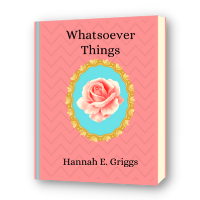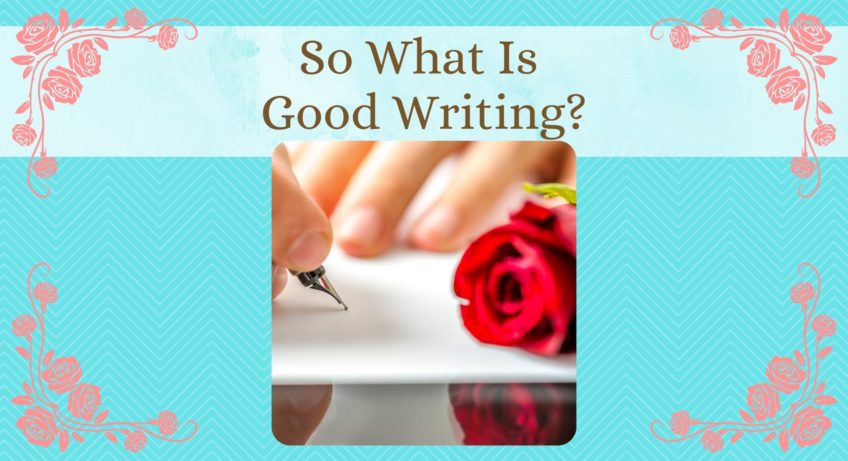A while back, I did a post on the benefits of good writing. Today I’m going to do a follow-up post on some writing techniques that add variety and make writing good. Before I begin, these ideas are not necessarily my own, but are some of what I have learned in the various writing classes I’ve taken.
One thing I’ve learned is that good writing is all about variety: variety of sentence length, word choice, punctuation, sentence opening, etc. Let’s dig a little deeper into each of these writing techniques.
Sentence Length
What if all sentences were short? What if they only had a few words each. They would sound choppy and unnatural. Reading wouldn’t be much fun. Would it?
Or what if all sentences were long, and just went on and on, with more phrases and clauses being put together to deliver the message of the writer, the writer who didn’t know how to end a sentence, how to conclude her thoughts? Wouldn’t reading be difficult if sentences always were as long and tedious as the last one, if the reader must continually focus on following the thought of the sentence and not get bogged down in the words that just keep coming as though they will never stop?
Do those two paragraphs make it clear why variety in sentence length is necessary? Too many long sentences together or too many short sentences together are not good for the overall flow of the writing project, as the examples above show.
Word Choice
Now let’s talk about our choice of words and why they need variety. Think for a moment about a conversation in a story you read recently. More than likely the author used words like said, answered, questioned, and stated. If only one word, such as said, is used to describe a conversation, it gets boring after awhile.
Good writing needs a variety of descriptive words. Words can be overused, and it is up to the writer to choose words that are alive, that bring a clear picture to the reader’s mind.
A thesaurus is a writer’s best friend, when it comes to variety in word choice. They provide you with an assortment of words related to the word you looked up. If you are overusing words like pretty, nice, big, tired, and hot, then it might be time to pull out a thesaurus or use your brain power to come up with a better, more descriptive word.
Punctuation
Before you leave, saying you didn’t come for a lesson in language arts, let me say that this is one of the most important parts of good writing, and it doesn’t have to be complicated. I won’t go into a lot of detail today; that will be for another post.
We have many different types of punctuation, some for using in the middle of a sentence, and other for the end of a sentence. To be able to use each kind of punctuation, we need to know how to use them. Before I knew how to correctly use a semicolon, I never used one. In fact, I never could remember which was a colon and which was a semicolon. But that changed when I learned how to use them in writing. Now the semicolon is one of my favorite punctuation marks to use.
Each punctuation mark has its own use, so it is important for us as writers to be able to use each of them. This adds variety to our writing and takes its quality to the next level. We can write different kinds of sentences when we use different kinds of punctuation.

Sentence Openings
There are quite a few different ways to begin a sentence. Beginning a sentence doesn’t have to be difficult if you know how to use the different sentence openings. Most words can be used to begin sentences, though grammar does need to be considered when you are choosing the right opening word.
The standard sentence opener is a noun or noun phrase. But too much of this style becomes repetitions after awhile, and something different is needed to change things up a bit. I really like using verbs to begin a sentence, like in the following examples.
“Giggling with delight, the little girl took the candy her uncle held out to her.”
Or, “Swallowing his last bite, he jumped up from the table and raced for the door.”
Using prepositions is another good way to begin a sentence.
“In the barn, the rain falling outside could scarcely be heard.”
Or, “After that terrible day was over, Rosa and her siblings were more than happy to go to bed and temporarily forget their troubles.”
When you take these and all the other sentence openings and mix them up in your writing, it adds a great deal of variety to it and creates a good flow. A book that is written with all the same kinds of words, punctuation marks, and sentence openings gets monotonous after awhile, and the reader will not enjoy it as much.
But when there is variety in all these areas, the book will flow well and the reader will be able to focus on the content and what the author is saying.
Conclusion
Variety. That’s what makes good writing. Vary your sentence length, your openings, your punctuation, and your word choices. It takes practice, but after awhile, it will all come more naturally.
So how many writers or want-to-be writers do we have here? I’ve loved writing for as long as I can remember, and by the time this post is live, I should have my first book published!
Do you write? Do you want to write but aren’t sure how to do it? Here where I live, it’s almost Spring. Go write a little paragraph about whatever season it is where you live! Include some of your favorite activities for that season or a favorite memory. And share it with me, if you care to. Just email me at hannah@morethanjustreading.com.
Well, if you’re interested in writing, stick around here because I have a lot more posts on writing coming up! In fact, each of the points in today’s post will be expanded in its own post. Go ahead and subscribe, so you get an email every time a new post goes up.




This was interesting. I liked the examples you used, especially the two paragraphs
Thank you, Dad! Glad you enjoyed it!